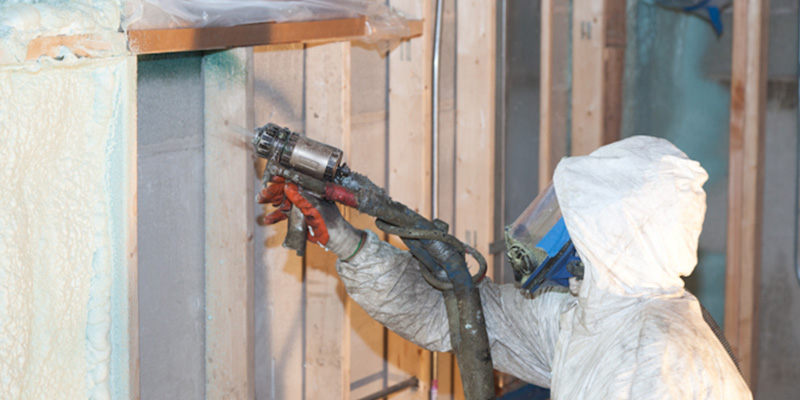
Everything you Need to Know About Closed Cell Foam Insulation
Closed cell foam is one of two types of spray foam insulation used in both residential and commercial properties. These foam insulation types are generally used for specific purposes and they each have their own set of strengths and weaknesses.
In discussing closed cell foam, we can look at a variety of factors such as: the cell composition, density, U-Values and water control. This variation of foam insulation is specifically purposeful for commercial applications where an additional layer of structural integrity is required. Due to the composition of closed cell foam, the product can aid to projects that involve remodelling or construction applications.
What are the Benefits of Closed Cell Foam Insulation?
1. Superior U-Values
The U-Value of closed cell foam is one of the most superior available in the market today. The U-Value of an insulation measures how much heat is lost through a material, using 3 practices of heat loss in a comprehensive equation. Therefore, the lower the U-Value the better the insulation as it means less heat will dissipate through the material.
Closed cell foam has one of the best thermal insulation capabilities out of all insulation products.
2. Vapour Barrier
Due to the natural composition of closed cell foam, the cells are extremely dense which allows the material to act as a vapour barrier, preventing both water and moisture from building up. Closed cell foam is particularly useful for areas where moisture can manifest, eventually ruining the structures of a property. Moreover, the actual foam insulation is also unaffected by water, providing a long-lasting insulation solution for your property.
3. Structural Integrity
As previously mentioned, due to the closed cell composition, it can act as a solid layer of structural integrity to any property. Therefore, this material is perfectly suited to commercial properties, reinforcing the structure, and providing sufficient external insulation. Additionally, residential properties can benefit from closed cell foam, especially in areas subject to harsh weather conditions, such as your roof, keeping it sturdy and preventing water from passing through.
4. Long-Lasting
Spray foam has a typical lifespan which lasts as long as your property. This makes an insulation investment a lot more worth it, knowing that your property will be protected and insulated with a top-quality product. Moreover, due to the energy savings from having closed cell foam insulation, you will actually see a return on your investment and, simultaneously, reduce your carbon output.
Popular Areas for Closed Cell Foam Insulation
1. Metal Buildings
Commercial structures, such as metal buildings, can greatly benefit from the sustainability and durability of closed cell foam insulation.
2. Pole Barns
Typically, a difficult structure to insulate, pole barns can have closed cell foam insulation without any issues. Additionally, barns require an extra sense of sturdiness which can be provided by this insulation material.
3. Exterior Applications
Due to the insulation preventing the passing of water, closed cell foam acts as a great exterior insulation product. Having this insulation on the exterior of your property can protect against water damage, mould growth, moisture build up and aid to the sturdiness of the property.
What are the Differences Between Closed Cell and Open Cell Foam Insulation?
The main differences between the two types of foam insulation lie in their cellular composition. As mentioned, closed cell is composed of rigid cells, whereas open cell is more flexible and airier. The differences in the cellular composition of the insulation products each have their own benefits for specific purposes.
Check out our article which compares closed cell foam with open cell to find out more.


